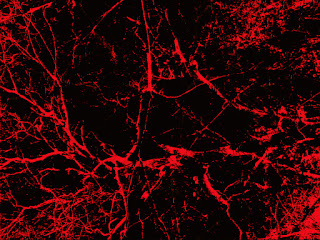Religion and Violence
Religion and Violence
Many a book has been written about that subject. Why? Because people liked to understand the ‘interwovenness’ between religion and violence. People like me. It has puzzled me for a long time why religious people can be as cruel and unforgiving as ‘regular’ folks. Or even more cruel and more unforgiving. Or is it so?
Sure, I will say, thinking about the extreme violence of the Church against ‘heretics’, ‘non-believers’, and ‘witches’. Very sadly, the inquisition drew a lot of blood and caused extreme pain for innocent people.
I think of warfare between
Christians and Muslims (vice versa), and both against Jews, between European (religious
and other) immigrants into America and their massive slaughter of the natives. I’m
aware if the long-lasting and devastating wars between Protestants and
Catholics, Sunni and Shii Muslim faith systems,
and many more …
Now, thinking about all this I came across the book ‘Fields of Blood’ by Karen Armstrong (2015). It is quite lengthy but it provides much insight into this subject.
In the following, I would like to summarize some of the topics Karen
Armstrong discusses (as I understand them; partially using her own words / expressions).
Of course, 5 years have passed by since Karen Armstrong wrote her book, only to
add up more examples of secular:religious warfare.
- Aggression and violence is innate to our nature.
- Killing and other forms of extreme violence can lead to sensation of ecstasy (like a powerful drug) and/or provide meaning of life and means for living.
- Warfare is always a mix between social, material and ideological factors, but mainly the competition for scarce resources and rulership (hegemony). Agrarian economies are prone to warfare (against each other), and fights between Herdsman and Farmers happened during a long time of history.
- Monotheistic religions tend to be absolute and ‘unforgiving’ when it comes to their demands. Killing often times seemed to be the Way of God.
- The ‘Holy Scriptures’ and religious teachings can be interpreted in many ways, one of them is the Holy War (Christians and Muslims alike). The God of the Thora / Old Testament seems to have been very strict when it comes to the extermination of other tribes and occupants of the promised ground.
- Often times, Jihad is understood as violent fight against ‘non-believers’.
- Of course, there have always been prophets, teachers and communities of peace who expressed their faith in non-violence. Some countries had some more (limited) success establishing peaceful relationships but could not prevent violence, belligerent teachings and acts of destruction, once again showing that civilization may depend on violence in order to sustain itself and prevail.
- For many centuries, the Rulers of States enforced their political and faith systems upon their subjects. There was no freedom for individually chosen religious beliefs, just the generally accepted and rigorously enforced one.
- Religious teachings can be easily used to ‘ignite’ the Spirit of Holy Warfare. Often times used to make the End of Times come quicker by trying to establish a worldwide kingdom under Christian faith (and a bit different for the Muslim equivalent). Apocalyptic visions trigger extremes of behavior.
- Religions tend to make their believers think that they are of higher value than other beings, leading (among others) to slavery and extermination of indigenous populations.
- Secular systems engage likewise in atrocities and genocides. Religious extremes often develop in a symbiotic relationship with a virulently aggressive secularism.
- Even in our most recent history, we have become witnesses of genocides and ethnic cleansing, as seen in the Armenian genocide, the Shoah (Holocaust), the killing of Muslim minorities (Srebrenica and elsewhere), and many other forms of severe atrocities against humanity.
- Often times, the word ‘Holy’ is used to provide special importance and meaning thus sanctioning acts of killing and self-sacrifice.
- Modern societies use their military prowess to maintain balance of power. Weapons of mass destruction can kill all humans thus no one wants to initiate humankind vanishing into oblivion, or so it seems.
So, finally, what have I learned or what do I take home?
Well, I’m not sure .. but I will try to adhere to the
teachings as expressed in the following words:
Do not impose upon others what you yourself do not desire. You shall love your neighbor as yourself.
Will it change the world? I’m afraid: not much. Will it change me? I‘m afraid: much.




Comments
Post a Comment